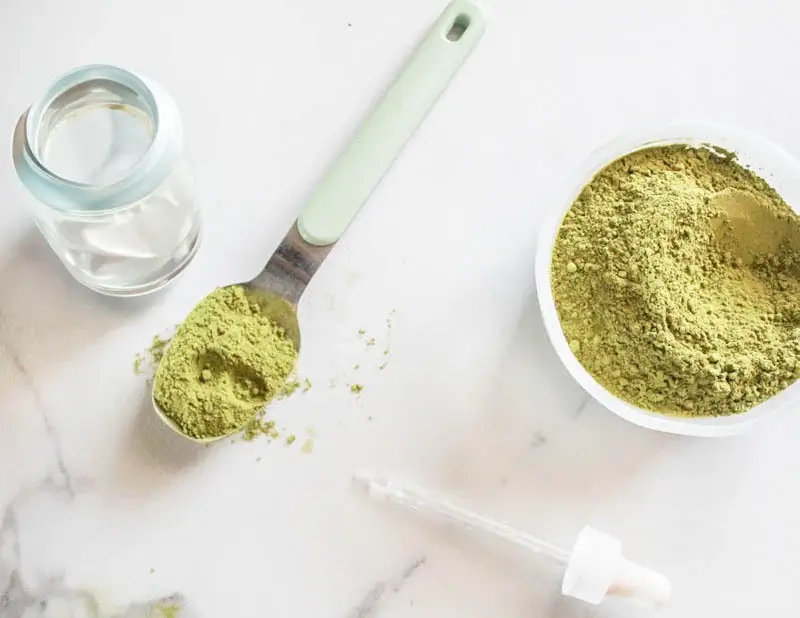Can oxidative stress be reversed? Why does it even matter if we have oxidative damage in our bodies? Fatigue, brain fog, and the signs of premature aging are common symptoms that many individuals encounter.
While these issues may seem minor, they often reveal significant imbalances within the body that can lead to serious health conditions. As Dr. Peter Kan vividly illustrates in our interview, it’s akin to holding a blowtorch to a couch. When the fire ignites fully, the damage becomes extensive and widespread.
When our bodies are low in antioxidants and have this inflammatory stress, it’s profound. We are learning that the effects are far-reaching, with links to a lot of diseases. But there is hope…the body can heal and regenerate itself when given the right support!
Our main goal is to mitigate any imbalance between free radicals and antioxidant capacities to restore the body’s natural systems. By doing so, we can enhance the body’s innate resilience and promote overall well-being. We’ll show you how to start small right at home!
Table of Contents
What Is Oxidative Stress?
Oxidative stress happens when thereʼs an imbalance between free radicals—unstable molecules that can damage your cells—and antioxidants, the compounds that neutralize them.
Peter Kan described the inflammation process like using a blowtorch to kill pests in your home. Inflammation is your bodyʼs natural defense response, like a blowtorch used to eliminate threats. Left to burn unabated, this chronic inflammation leads to oxidative stress, which can silently destroy your blood vessels, brain, heart, and other sensitive tissues over time.
In other words, oxidative overload happens when free radicals overwhelm your antioxidants, damaging cells and tissues. Your body produces some free radicals naturally, but modern life bombards us with extra sources like poor diet, pollution, chronic infections, emotional stress, and lack of sleep.
This added oxidative stress wears down the vascular endothelium—the delicate lining inside your blood vessels—leading to problems throughout your body.
Signs and Symptoms of Oxidative Stress
Oxidative stress is often invisible at first, but it can manifest in ways that signal deeper damage.
These symptoms can be your bodyʼs way of asking for support in boosting antioxidant levels or minimizing free radicals:
- Fatigue and low energy
- Brain fog and memory issues
- Premature aging (wrinkles, dull skin)
- High blood pressure or irregular heartbeat
- Chronic inflammation and joint pain
- Poor wound healing or frequent infections
- Vision problems (macular degeneration, cataracts)
- Headaches or sensitivity to noise
- Mood swings, anxiety, or irritability
These may all seem like unconnected issues. Then, you have heart problems, chronic diseases, and serious life-threatening illnesses that crop up. And as Dr. Peter Kan reminded us, we have to ask ourselves, ‘Why?’
“Whatʼs the root? Whatʼs causing what?ˮ – Dr. Peter Kan
Health Conditions Linked to Unchecked Oxidative Stress
Oxidative stress doesnʼt just cause symptoms—itʼs a foundational dysfunction that can spread damage throughout your body. Dr. Kan emphasizes that the vascular system is often the first to suffer, setting off a cascade of chronic conditions.
Here’s how not having enough antioxidants in your body can contribute to common chronic diseases:
1. Heart Disease and Stroke
Oxidative stress hurts your cardiovascular health by compromising the endothelium (the fragile lining of blood vessels). This harm makes one more vulnerable to inflammation and atherosclerosis, or the accumulation of fatty plaques. Maintaining endothelial health is vital for good cardiovascular well-being!
Consequently, the supply of nitric oxide is diminished. This chemical is essential for keeping blood vessels flexible and healthy. Lower levels of nitric oxide can lead to arteriosclerosis, elevated blood pressure, and an increased risk of heart attacks, strokes, and other cardiovascular issues.
2. Alzheimerʼs (Type 3 Diabetes) and Cognitive Decline
The brain’s heightened susceptibility to oxidative stress stems from its high oxygen consumption and high fat content. Free radicals cause neuronal damage and disrupt the balance between oxidants and antioxidants, thereby hindering memory and learning.
Oxidative stress also promotes amyloid plaques and tau tangles, hallmark signs of Alzheimerʼs disease. In those with diabetes, this stress compounds issues with brain glucose metabolism, often termed “Type 3 Diabetes,” speeding up cognitive decline.
3. Parkinsonʼs Disease and Neurodegenerative Disorders
One major cause of the death of dopamine-producing neurons in Parkinson’s disease and many other neurodegenerative illnesses is oxidative stress. This leads to tremors, muscle rigidity, and slower movements.
Free radicals, from normal metabolism or environmental toxins, overwhelm the brain’s antioxidant defenses, fueling neurodegeneration. Mitochondrial malfunction and impaired detoxification exacerbate oxidative damage. Which highlights the vital role it plays in the course of Parkinson’s disease and similar illnesses.
4. Type 2 Diabetes and Insulin Resistance
Oxidative stress disrupts insulin signaling pathways, hindering cells’ ability to absorb glucose from the bloodstream efficiently. This disruption leads to elevated blood sugar levels and places additional strain on the pancreas.
Over time, this can result in the depletion of insulin-producing beta cells. Persistent oxidative stress significantly contributes to the onset and progression of type 2 diabetes and its associated complications, such as nerve, eye, and kidney damage.
5. Obesity and Metabolic Syndrome
People carrying extra weight often deal with more oxidative stress, which can trigger chronic inflammation and throw hormones and metabolism out of balance. This type of stress prompts the body to store more fat, making it more challenging to manage blood sugar and cholesterol levels.
Over time, it can lead to metabolic syndrome. Metabolic syndrome is a group of issues that raise your risk for heart disease, stroke, and diabetes.
6. Autoimmune Conditions (Rheumatoid Arthritis, etc.)
An imbalance between free radicals and antioxidants can actually mislead the immune system, causing it to attack healthy tissues by mistake. This is what happens with autoimmune diseases like rheumatoid arthritis.
An immune response that is misdirected like this creates inflammation and tissue damage, beginning a cycle where each flare-up generates additional free radicals and exacerbates oxidative damage. Effectively managing oxidative stress will be crucial in controlling symptoms and preventing long-term joint and organ damage associated with autoimmune conditions.
7. Cardiovascular Diseases (Heart Disease, Hypertension)
Cardiovascular ailments, including heart disease and hypertension, are significantly influenced by oxidative stress. This type of stress hastens plaque accumulation in the arteries, contributing to atherosclerosis and elevating the risk of heart attacks and strokes.
Furthermore, this excessive oxidative activity can impair the function of the endothelium (the inner lining of blood vessels). This leads to increased blood pressure and vascular inflammation.
Switching to a diet rich in antioxidants, alongside regular exercise and stress management, is crucial for protecting cardiovascular health and decreasing these risks.
8. Diabetes and Metabolic Syndrome
Diabetes and metabolic syndrome are strongly linked to oxidative stress. A lack of antioxidants intensifies insulin resistance and beta-cell dysfunction in the pancreas. Over time, this can lead to serious complications like nerve damage, kidney trouble, and vision problems.
Managing oxidative stress through a balanced diet, consistent physical activity, and maintaining a healthy weight is important. These steps will help you control blood sugar levels and prevent diabetes-related complications.
9. Chronic Kidney Disease
The kidneys play a vital role in keeping our bodies healthy by filtering out waste from our blood. However, they can be easily harmed by oxidative damage and inflammation. When our bodies experience ongoing oxidative stress, it can lead to scarring, a condition called fibrosis, which can decrease kidney function over time.
Fibrosis can eventually lead to chronic kidney disease (CKD). That’s why it’s so important to lower oxidative stress levels. We can actually help protect our kidney health and slow down the progression of CKD.
10. Certain Cancers (Emerging Research)
We now know that too much oxidative stress can damage your DNA and other important parts of your cells, raising the risk for mutations that may lead to cancer. When your body’s under constant stress from inflammation and free radicals, it creates the perfect storm for abnormal cells to grow and spread.
While oxidative stress isn’t the only cause of cancer, and research on the subject is new, it’s worth noting. Keeping it in check is a powerful step toward staying well and supporting long-term health.
Can Oxidative Stress Be Reversed? 12 Natural Ways to Heal
In our modern world, stressors are everywhere. You canʼt eliminate them all, but you can strengthen your bodyʼs resilience by improving antioxidant capacities.
Dr. Kan reminds us that our body has the ability to heal. By reducing your oxidative burden and supplying the antioxidant capacities of your cells, you can prevent further damage and even reverse some of the effects over time.
To cultivate a balanced lifestyle and work towards a healthy, abundant life, integrate these tips. Here are ten key practices to add to your daily routine so you can enhance the antioxidant activities of your body systems:
1. Eat an Antioxidant-Rich Diet
Colorful fruits and vegetables are the most powerful sources of natural antioxidants. Focus on berries, leafy greens, cruciferous veggies, and sweet potatoes to help neutralize free radicals and reduce oxidative damage.
Foods high in beta-carotene, Vitamin C, and Vitamin E help boost your antioxidant levels and support cellular repair. Include herbs like turmeric and rosemary for their anti-inflammatory and antioxidant properties.
Eating the rainbow isnʼt just pretty…itʼs powerful protection for your health. Don’t think of these as dietary restrictions, but rather think of them as eating the way God designed us to eat.
2. Avoid Inflammatory Foods
Refined sugar, trans fats, processed meats, and fried foods are major contributors to oxidative stress. These foods accelerate lipid peroxidation and increase inflammatory responses throughout the body.
Dietary restrictions that swap these for better choices can dramatically reduce oxidative stress levels. Replace processed items with whole food sources like legumes, nuts, seeds, and wild-caught fish for nutrient-dense meals that nourish instead of harm. Look at Mama Z’s recipe swaps for the best way to do this with long-term, delicious results.
3. Hydrate Generously
Adequate hydration helps your body flush toxins and maintain proper cellular function. Water supports the natural detoxification process in the liver and kidneys while also enhancing your immune response.
Try switching to our essential oil water concentrate, infused water recipes, or herbal teas like Mama Z’s hibiscus tea to boost your hydration while benefiting from antioxidant activities. Proper hydration is one of the simplest yet most overlooked ways to combat oxidative stress.
4. Manage Stress with Godʼs Peace
Chronic stress increases cortisol and oxidative damage in the body. Embracing practices like prayer, worship, journaling, and gratitude helps activate the parasympathetic nervous system and reduce the damaging effects of chronic tension. Pair faith-based practices with physical relaxation techniques like deep breathing or stretching. Your emotional and spiritual wellness are just as critical to healing as your diet.
5. Sleep: Your Nightly Reset Button
Sleep is essential for cellular repair and detoxification. This is the time when your body regenerates tissue and balances antioxidant levels. Aim for 7 to 9 hours of sleep each night, and use tools like lavender essential oil, Wholetones music, or blackout curtains to support a restful sleep. Without enough sleep, oxidative stress builds up and weakens your defense systems.
6. Move Daily (Even in Small Bursts)
Moving your body helps balance your blood sugar, strengthens your heart, and boosts your body’s natural ability to fight off harmful toxins. Aim for a balanced mix of strength training and aerobic movement, like walking, biking, or rebounding. Even short bursts of physical activity throughout the day improve blood flow and reduce oxidative burden.
Movement truly is medicine. Start small if necessary. If you can only do 3 push-ups, do 3 push-ups. And a couple of hours later, do 3 more. And then 3 more. In a week, you’ll be able to do 5. And then you’ll be able to do 10. That’s how you get stronger.
7. Try Intermittent Fasting
Restricting eating to an 8-10 hour window, known as intermittent fasting, allows your body time to repair and clean up oxidative damage. Fasting has been shown to enhance mitochondrial function and reduce inflammation.
Start slowly, and consult your healthcare provider if you have medical conditions. You could simply delay breakfast. Pair intermittent fasting with nutrient-rich foods following dietary restrictions that eliminate sugar and other harmful foods for the best results.
8. Detox Your Environment
Many environmental pollutants, such as pesticides, plasticizers, and synthetic fragrances, act as oxidative stressors. Reduce exposure by switching to natural body care, essential oil-based cleaning products, and non-toxic cookware. Avoid heating food in plastic and opt for glass or stainless steel. Every small swap helps lower your oxidative burden.
9. Consider Supportive Supplements
Nutrients like glutathione, alpha-lipoic acid, NAC, selenium, Vitamin E, Vitamin D, and CoQ10 help protect against oxidative damage. Work with a holistic provider to identify whatʼs best for your needs. Quality matters—choose supplements from reputable sources that prioritize purity and bioavailability. These compounds can play a vital role in rebuilding antioxidant capacity.
10. Maintain a Healthy Weight
Excess body fat increases systemic inflammation and oxidative stress. Even a modest reduction in weight has been shown to improve antioxidant status and metabolic balance.
Focus on whole foods rich in bioactive compounds. Think about eating intentionally and joyful movement rather than restriction. Your body will thank you for each small step forward.
11. Optimize Your Vitamin D Levels
Vitamin D is essential for your bodyʼs antioxidant defenses and helps reduce inflammation. Research shows that maintaining healthy vitamin D levels through safe sun exposure, diet, or supplements can lower oxidative stress markers and boost the activity of protective antioxidant enzymes. Adequate vitamin D also supports immune function and overall wellness. Work with your healthcare provider to check your levels and find the best approach for your needs.
12. Connect with Nature: Forest Bathing & Grounding
Spending time outdoors, especially in forests, has been shown to increase antioxidant activity and reduce markers of oxidative stress. Forest bathing (Shinrin-yoku) allows you to breathe in natural plant compounds that help your body fight free radical damage.
Grounding, walking barefoot on grass, soil, or sand, has beneficial effects as well. Scientists are still learning exactly how it works, but research says it does. Both practices are simple, accessible ways to reconnect with Godʼs creation, support your bodyʼs health journey, and, as a bonus, can help boost your vitamin D levels when done in the sunshine.
Small Steps Will Support Cellular Damage Healing
Putting these steps into practice can help you feel healthier and more alive. Healing from oxidative stress takes time, and everyone’s journey looks a little different.
One of the best ways to track your progress is by paying attention to how you feel: Are you sleeping better? Is your energy more stable? Are your moods more even? These are signs your body is healing.
In our interview about Endothelial Damage, Dr. Kan encourages us not to try to take giant steps all at once but to start small.
“It still works. You’re still going to get stronger. ˮ Dr. Peter Kan
And while itʼs wise to work with a trusted healthcare provider, especially if youʼre managing chronic diseases or health concerns, you can start making changes today. Small swaps in your meals, adding Vitamin C to your supplement routine, getting outside for Vitamin D, and looking at your food sources can all make a profound difference.
You were fearfully and wonderfully made. Your body is not broken—itʼs been overwhelmed. But with Godʼs help, natural support, and consistent care, restoration from even chronic diseases is possible.
“Beloved, I pray that you may prosper in all things and be in health, just as your soul prospers.ˮ (3 John 1:2)
- https://pmc.ncbi.nlm.nih.gov/articles/PMC3880899/
- https://pmc.ncbi.nlm.nih.gov/articles/PMC4736408/
- https://pmc.ncbi.nlm.nih.gov/articles/PMC5551541/
- https://academic.oup.com/ijnp/article/11/6/851/671366
- https://pubmed.ncbi.nlm.nih.gov/38499906/
- https://pubmed.ncbi.nlm.nih.gov/40362911/
- https://pmc.ncbi.nlm.nih.gov/articles/PMC4444430/
- https://pubmed.ncbi.nlm.nih.gov/31432604/
- https://pubmed.ncbi.nlm.nih.gov/15599400/
- https://pubmed.ncbi.nlm.nih.gov/30105414/
- https://pubmed.ncbi.nlm.nih.gov/20840865/
- https://pubmed.ncbi.nlm.nih.gov/29510179/
- https://pubmed.ncbi.nlm.nih.gov/20646222/
- https://pubmed.ncbi.nlm.nih.gov/24440038/
- https://pubmed.ncbi.nlm.nih.gov/19568839/
- https://pubmed.ncbi.nlm.nih.gov/22291721/
- https://naturallivingfamily.com/podcast/vascular-health-with-peter-kan/










